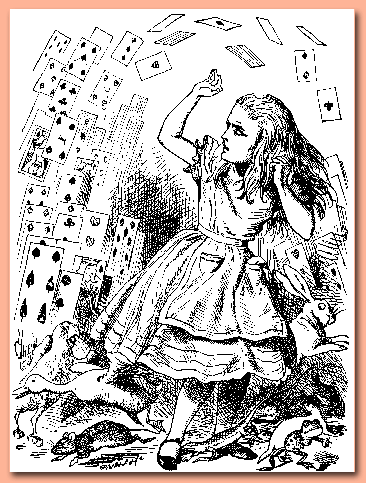The critical thing about this course is the reading which follows the train of thought of the module. Going back to the name of the module (digital cultures) what happens when you put the two words together. What is culture - how might one define it?
Andy: Accumulated knowledge but not necessary everything that gets accumulated in history, because not everything makes it into being culture.
Andrew: Whose knowledge?
Andy: collective knowledge...
Andrew: Where is this knowledge and how do you access it?
Andy: books, a collective subconscious of things remembered
Andrew: so the surrounding culture shapes our identity, some kind of context for everything. This was one of the major conclusions from our first lecture, that everything has a context: people and artifacts.
The other word is digital?
Andy: A bland definition as compared to analogue, whereby digital works by a binary signal, on or off, 1 or 0.
Andrew: So a system of encoding? How do the 1s and 0s operate?
Task: get a simple definition of digital
Whereas culture is all about context, digital numbers don't really have a context.
FlatLand by Edwin Abbot a short novel.

Critical Reading Must: Pierre Menard by Borges and Walter Benjamin's The Work of Art in an Age of Mechanical Reproduction and Lev Manovich's The Language of New Media and try also Tractatus Logico Philosophicus by Wittgenstein. Here Wittgenstein is trying to describe the universe in words but decides that words just aren't adequate for some things (like God) so we can't talk about it. A very *pure* attempt to do the impossible.
Wittgenstein: Believed in scientific fact but is there such a thing as scientific fact? (Andy's question). See Richard Feynman.
"We can't define anything precisely. If we attempt to, we get into that paralysis of thought that comes to philosophers… one saying to the other: "you don't know what you are talking about!". The second one says: "what do you mean by talking? What do you mean by you? What do you mean by know?"
Volume I, 8-2
Think syllogism: "a deductive scheme of a formal argument consisting of a major and a minor premise and a conclusion (as in “every virtue is laudable; kindness is a virtue; therefore kindness is laudable."

Read Beckett's Murphy as there is a lot about the Modernist outlook. As Joyce said, Finnegan's Wake is not about something it is the something" - overall aim of the Modernist Project. Inspiration for musicians (John Cage, Barry Truax his riverrun, Roger Marsh).
Joyce, Vladimir Lenin and Tristan Tzara all in Zurich in 1917.
Barthes:
"ACCORDING TO ROLAND BARTHES, all narratives share structural features that each narrative weaves together in different ways. Despite the differences between individual narratives, any narrative employs a limited number of organizational structures (specifically, five of them) that affect our reading of texts. Rather than see this situation as limiting, however, Barthes argues that we should take this plurality of codes as an invitation to read a text in such a way as to bring out its multiple meanings and connotations. Rather than read a text for its linear plot (this happens, then this, then this), rather than be constrained by either genre or even temporal progression, Barthes argues for what he terms a "writerly" rather than a "readerly" approach to texts. According to Barthes, "the writerly text is ourselves writing, before the infinite play of the world (the world as function) is traversed, intersected, stopped, plasticized by some singular system (Ideology, Genus, Criticism) which reduces the plurality of entrances, the opening of networks, the infinity of languages" (5). This closing of the text happens as you read, as you make decisions about a work's genre and its ideological beliefs; however, when you analyze any one sentence of a work closely, it is possible to illustrate just how impacted with meaning (and possibility) any one sentence really is."
What is a myth? An anonymous story that attempts to explain a world view.
Derrida: does the author have any importance to a story?
"'there is no outside-the-text' signifies that one never accedes to a text without some relation to its contextual opening and that a context is not made up only of what is so trivially called a text, that is, the words of a book or the more or less biodegradable paper document in a library. If one does not understand this initial transformation of the concepts of text ...[and] ... context, one understands nothing about nothing of .... deconstruction ..."
"all those boundaries that form the running border of what used to be called a text, of what we once thought this word could identify, i.e. the supposed end and beginning of a work, the unity of a corpus, the title, the margins, the signatures, the referential realm outside the frame, and so forth. What has happened ... is a sort of overrun that spoils all these boundaries and divisions and forces us to extend the accredited concept, the dominant notion of a 'text' ... that is no longer a finished corpus of writing, some content enclosed in a book or its margins, but a differential network, a fabric of traces referring endlessly to something other than itself, to other differential traces."
TASK: Read!
Question: What is the culture of Wikipedia?

For interest: Read Alice in Wonderland and/or The Annotated Alice: The Definitive Edition ed. Martin Gardner. For more on Alice see here. In a way, Alice is a story that has achieved that *mythical* status - it has woven together mathematical principles, cultural ideas etc..."
